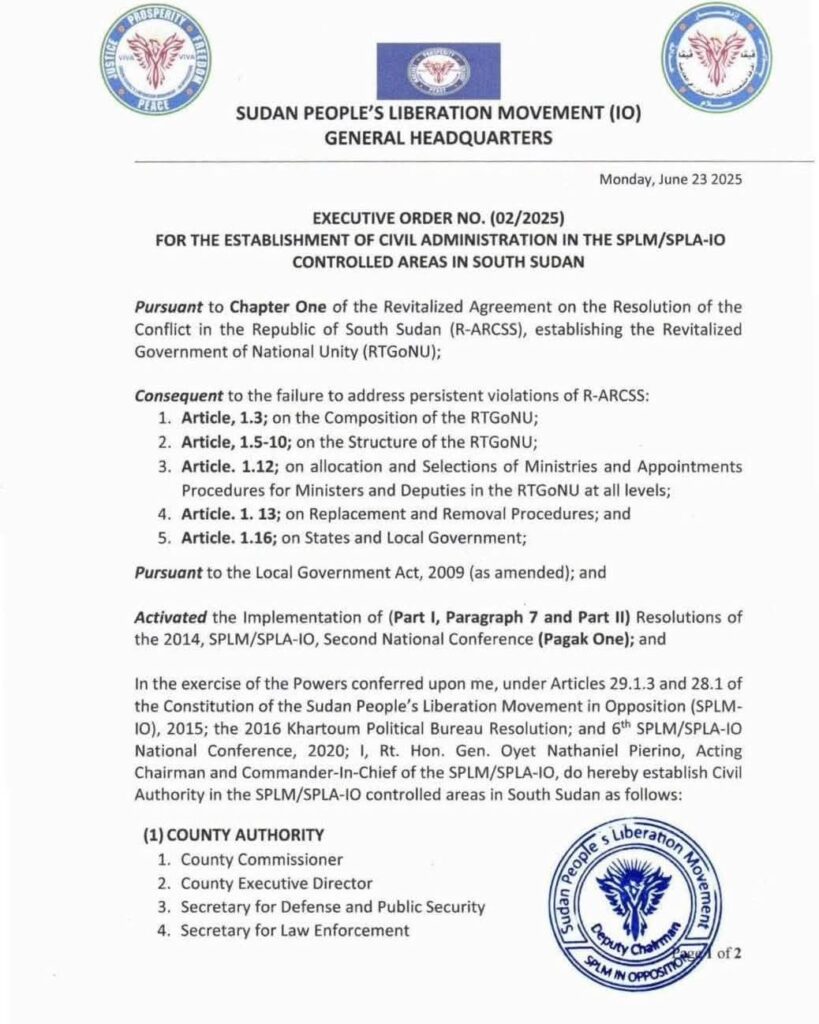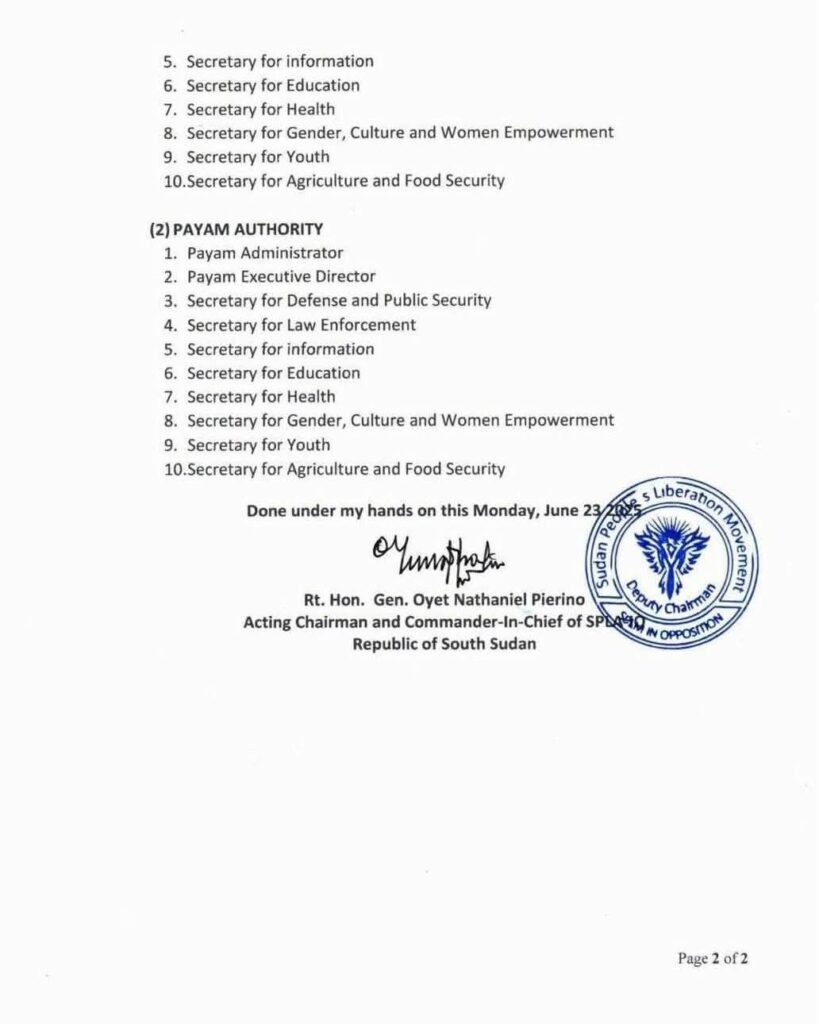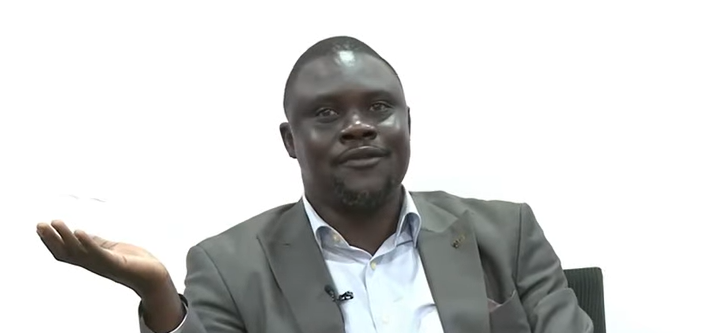A South Sudanese policy analyst warned that the Sudan People’s Liberation Movement-in-Opposition’s (SPLM-IO) move to establish a parallel civil authority in areas under its control could signal the collapse of the country’s fragile peace agreement.
Baboya James Edmond, a policy expert at the Institute for Social Policy and Research in Juba, told Radio Tamazuj that the June 23 executive order by SPLM-IO Acting Chairman and Commander-in-Chief, Gen. Oyet Nathaniel Pierino, is both a political statement and a response to the government’s failure to implement key provisions of the 2018 Revitalized Agreement on the Resolution of the Conflict in South Sudan (R-ARCSS).
“This move shows that SPLM-IO believes the peace agreement is dying,” Baboya said. “They are now trying to fulfill provisions of the agreement on their own, especially those related to decentralization and local governance.”
Executive Order No. 02/2025 establishes a County Authority in SPLM-IO-controlled areas, naming four key positions: County Commissioner, County Executive Director, Secretary for Defense and Public Security, and Secretary for Law Enforcement. The group says the decision, based on the 2009 Local Government Act, responds to “persistent violations” of critical peace deal provisions, including power-sharing, appointment procedures and state-level governance.
Baboya noted that Articles 1.1, 1.5–10, 1.12, 1.13 and 1.16 of the peace deal, outlining the structure of the Revitalized Transitional Government of National Unity (RTGoNU), remain largely unimplemented.
“The SPLM-IO is essentially reminding the government that decentralization and functional local governance were never optional — they’re in the peace agreement,” he said. “By taking this step, the IO is asserting its continued legitimacy and drawing attention to government inaction.”
The policy analyst warned the move could revive a dual power scenario similar to the civil war period, when SPLM-IO ran its own administration in controlled territories, appointing governors and commissioners.
“This announcement signals that we may be entering a phase where there are effectively two governments in South Sudan — one run by the SPLM and one by the IO,” Baboya said. “It raises real questions about legitimacy and unity.”
He criticized both the SPLM-led government and SPLM-IO for failing to provide leadership to resolve the political deadlock.
“The national government is stuck. The SPLM-IO is also stuck. Instead of dialogue, both sides are issuing unilateral declarations and press releases. The peace deal risks becoming nothing more than a piece of paper,” he added.
Baboya urged the government to revise the Local Government Act and implement real decentralization, ensuring counties, payams, bomas and municipalities function as independent administrative units.
“The only way forward,” he concluded, “is for both parties to return to dialogue and fully commit to implementing the peace agreement — not just in words, but in action.”
Government officials in Juba could not immediately be reached for comment.
Frustration has grown over delayed implementation of the 2018 deal, insecurity and political tensions following the March detention of SPLM-IO leader and First Vice President Riek Machar by President Salva Kiir.
With international mediators increasingly silent, analysts warn the political vacuum could further fragment authority, leaving civilians to bear the cost.
South Sudan stands at a dangerous crossroads as rising tensions threaten the 2018 peace deal, fueling fears of renewed conflict in the world’s youngest nation, already struggling under a deepening humanitarian crisis, according to a recent U.N. warning.






